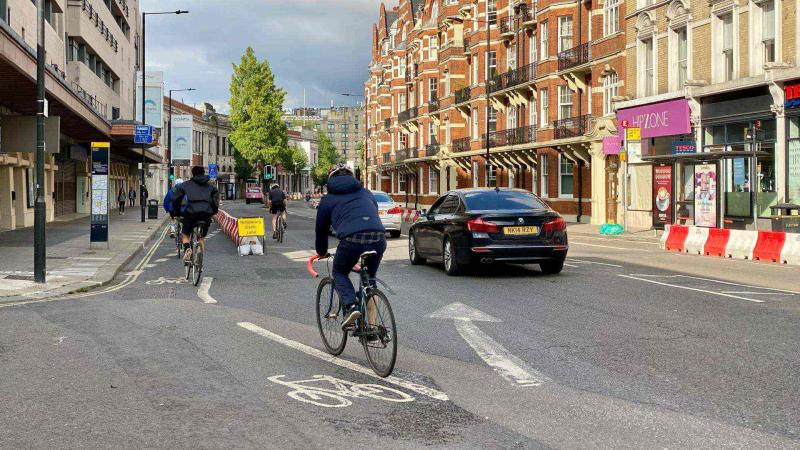Dr Stephanie Laselle, Collaboration Development Manager, and Dr Jeeshan Gazi, Research Impact Officer, have written a blog post for the Universities Policy Exchange Network (UPEN) about the importance of bringing the public and policymakers together on the matter of active travel.

The blog post highlights the crucial work that Westminster academics are conducting in the active travel space. Such projects include Professor Rachel Aldred’s work in translating her research into experiences of cycling and of active travel policy-making for partners such as Transport for London and the former Deputy Mayor for Transport in London, which led to changes in the guidance documents provided to infrastructure planners.
The blog also discussed the difficulties researchers face in challenging public perceptions around active travel, especially when some in local communities perceive active travel interventions – such as low-traffic neighbourhoods - to be disruptive to their daily lives.
Speaking about how Westminster research is seeking to avoid such conflicts, Dr Laselle and Dr Gazi said: “The University of Westminster is using Research England’s Participatory Research and Policy Support Funds to work towards avoiding future conflict between local authorities and citizens by facilitating their greater input into the vital policy changes that are required to meet the climate challenges we all face.
“One project is led by Dr Enrica Papa and aims to advance mobility justice through intensive co-production, meaning she is doing research with people instead of for them or on them. It focuses on two ‘street experiments’, defined as ‘intentional, temporary changes in street use, regulation and/or form, aimed at exploring systemic change towards a post-car city’. Drawing on partners from her larger EX-TRA [Experimenting with City Streets to Transform Urban Mobility] research project, Dr Papa and Dr Emilia Smeds are bringing together communities from Redbridge and Lambeth that are typically underrepresented in local planning debates, local civil society groups and the respective local councils, to capture people’s narratives of lived experiences in public space and to provide recommendations for the Borough Councils as they develop their active travel policymaking.”
Speaking about the desired impact of these projects, Dr Laselle and Dr Gazi concluded: “The hope at University of Westminster is that research projects like these will help to shift the relationship between policymakers and communities on the matter of active travel. This development of new methods for effective policymaking should in turn enable greater investment in green policy by the citizens living in the areas of intervention.”
Read the full blog post on the UPEN website.


